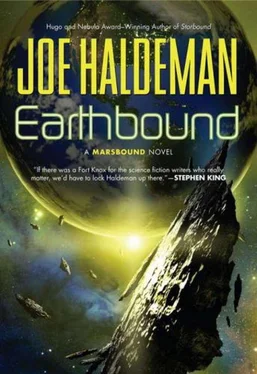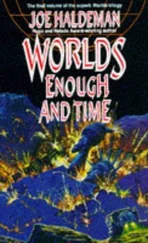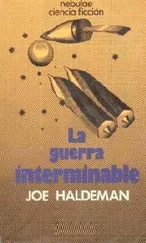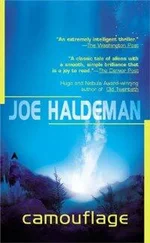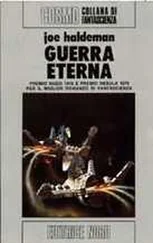“Brain, endocrine system, gonads. The parts that generate and mediate emotional states.”
“Well, welcome to reality.”
He had another drink and shook his head, wincing. “Just what I’d expect you to say, Carmen. But there are all kinds of reality. This one is shallow and painful and inescapable.”
“But this one is the real world.”
“Not to me. Not to billions of perfectly real people.”
We had talked about this a little on the cube two days ago. But I guess to me it was just a more vivid and time-consuming version of the VR games that had so dominated his time when he was a kid. To my great annoyance and our parents’ exasperation.
“Sorry I’m being such a Sal the Sal,” he said, dragging a long-dead pop star from our mutual childhood, an egotistical brat. “It’s almost an automatic reflex, switching over, and my body wonders why it’s alive and suffering.”
“You’re dead while it happens?”
“Sure, this body. You can’t be in two places at once.”
Creepy. “Well, I can see that it’s a terrible loss. Worse than your best friend dying.”
“They were both me ! Dying. And I think this third me could die if I will it.”
“Don’t even think of it, Card. You’re all the family I have.”
“And your only native guide. It’s nice to feel wanted.”
Nice to have a native guide, but as darkness fell, I might have traded him for a map and a flashlight. A big box of kitchen matches wouldn’t hurt. Did they still have them in this future?
We had lined up all our gear by the door and opened it a crack to watch the light fade. The cloudless sky went from lemon to salmon to deepening gray.
It was no surprise, of course, to see meteors crisscrossing as the sky got darker; we’d been seeing that ever since the Others blew up the moon. Really bright ones rolled across the daytime sky so often that no one commented on them anymore. But there was a new feature that we hadn’t noticed while there was still power, and the lights of civilization: night would never be completely dark.
That cloud of debris that was the corpse of the moon was composed of trillions of pebbles and rocks that all reflected sunlight like tiny moons. The result was a dim haze that made enough light to see your hand a few feet away.
Paul was mortified that he hadn’t predicted it, with his graduate degree in astrophysics. Of course, we hadn’t seen a night sky without city lights since we had landed on Earth four days before.
Our plan to sneak up to the farm under cover of darkness was useless. There would be plenty of people on the road at night, avoiding the desert heat.
Snowbird gave voice to the obvious. “You have to leave me behind. I’m like a beacon, drawing trouble. And I slow you down.”
“We’re responsible for you,” Namir said.
“Not really. I would as soon die here as anywhere, and I would rather not take any of my friends with me.
“Perhaps I will just swim away until I tire out and sink. I would be the best Martian swimmer on Earth. Or anyplace.”
“Thank you for the generosity, but we can’t abandon you.” In the dim murk, I couldn’t read the others’ expressions. “Are we in agreement here?”
“No,” Dustin said. “Snowbird, I also appreciate your logic and selflessness. I really think I would make the same offer if I were in your shoes. In your position. Who is with me?”
There was some muttering and throat clearing, cut short by a loud thump that was the butt of Namir’s rifle hitting the floor. “We are not going to cast lots over whether to allow one of our number to die.
“The seven of us are alone here. We traveled fifty light-years together in constant danger and considerable discomfort. We faced a powerful and implacable enemy and survived. We watched our universe change drastically three separate times. Whatever is going to happen to us, we face it together.
“Snowbird, consider extending your logic and generosity. If some idiot kills you for being a Martian, you will be exactly as dead as if you had drowned. Meanwhile, you might be the most valuable member of this ragtag bunch.”
“You’re our wild card,” Paul said. “I think you’re the only Martian in the hemisphere. You’re closer to understanding the Others than any human can be, and they’re still the primary enemy, no matter how far away they are in space and time.”
Elza stood up in the darkness. “The enemy I’m worried about now are assholes like the ones you dealt with today. So what are we going to do now? I mean tonight. If we can’t benefit from darkness, maybe we should stay here until morning and start moving then, when no one can sneak up on us.”
“That’s right,” Namir said. “Another six or eight hours’ rest wouldn’t hurt us, either.”
“Leaving two of us on guard while the others sleep,” Elza said.
“One up on the roof, with the binoculars,” Paul said. “That should be me. I can use the stars to measure out two-hour shifts.”
“Show us how?” Namir said.
I saw Paul’s silhouette as he opened the door to look out. “Sure. It’s dark enough.” The brighter stars were visible through the sky glow.
We all filed out, including Snowbird—never can tell when reading the stars might come in handy, for a doomed Martian stranded in the Mojave Desert.
It was possible to come close to calculating the actual local time, if you knew the date and a few constellations. But none of us had appointments to meet, so he just showed us an easy way to approximate the passage of time. Your fist at arm’s length is about ten degrees. The sun or moon or a star moves about thirty degrees, three fists, in two hours.
(Meryl was able to use her xenology background—she knew better than the rest of us how the world looked to a Martian—and patiently translated what Paul had showed us into Snowbird’s anatomy. She did have a lot more fists to work with.)
I drew the first shift, with Paul on the roof, but Namir was out there, too, hidden behind a truck. Not tired enough to sleep, he said.
He had showed us all how to operate the rifles and pistol, and made us practice loading and unloading and safety procedures until we could do the whole drill with our eyes closed.
It didn’t make me too confident. The rifle was heavy and cold and greasy, and smelled of gunsmoke. My skin still crawled where the man’s blood and brains had spattered me.
I’d vomited twice again, mostly water and acid.
I was hungry but didn’t want to waste food by barfing.
So I tried to force myself into calm, but I couldn’t not think about the sudden explosion and gory splash.
Namir had asked whether I would like to be excused from the guard schedule because of the traumatic experience. I said no, that feeling as if I could protect myself would help. Maybe it would. Not yet.
I was next to the front door, behind a stack of sandbags scavenged from the wall. I could crouch behind them and shoot over the top of the stack, or lie down—“assume the prone position,” which sounds like a porn director’s command. Or I could curl up into a ball and weep.
There was a hole in the sky, which was interesting. I actually figured it out for myself before Paul had a chance to enlighten me: it was the Earth’s shadow, blocking off sunshine from the lunar debris. Sort of an anti-moon, a little bigger than the moon and moving much faster through the sky.
The constant meteor shower seemed to be slowing down, or maybe I was just getting used to it.
There was a quiet rustle behind me, and I started. But it was only Snowbird.
“I wondered whether you were ready to eat,” she said. She held out something that touched my arm.
Читать дальше
